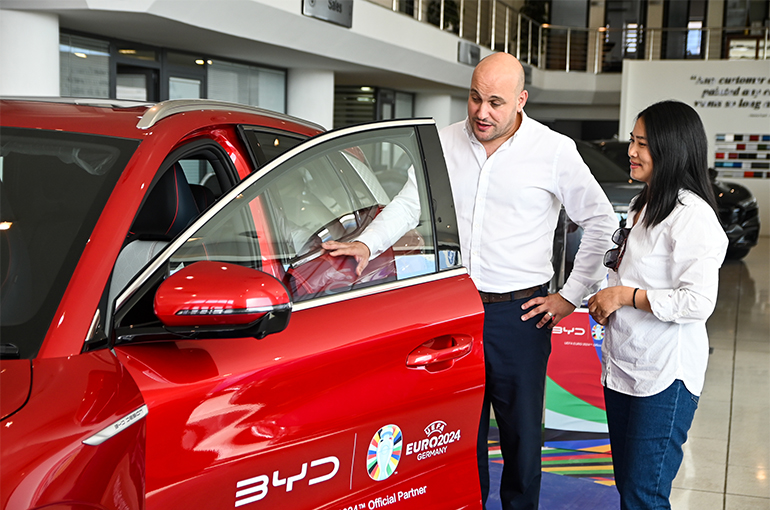 Türkiye’s U-Turn on Auto Tariffs Aims to Lure Chinese Investment, Researcher Says
Türkiye’s U-Turn on Auto Tariffs Aims to Lure Chinese Investment, Researcher Says(Yicai) July 22 -- From twice announcing increased tariffs on imports of Chinese cars to recently announcing conditional exemptions, Türkiye’s policy U-turn is aimed at attracting Chinese investment, according to an expert.
Türkiye hopes to attract Chinese firms to invest in the country to promote the development of its new energy vehicle market and boost exports to neighboring regions, Zou Zhiqiang, a researcher with the Center for Middle Eastern Studies at Fudan University, told Yicai yesterday.
In March last year, Türkiye introduced a 40 percent additional tax on all fuel-powered and electric vehicles imported from China to protect its own auto industry and reduce its deficit. Last month, the country extended the policy to all types of vehicles and auto parts from China.
Then on July 5, the Turkish government announced that under new regulations on investment incentives Chinese automakers that invest in and build production facilities in the country will only need to pay the standard import tariff of 10 percent, rather than the 40 percent additional duty.
The competitiveness of Turkish EVs is relatively weak, as shown by their high prices and low penetration rate, Zou noted. With the lower tariff, Türkiye hopes to entice foreign investment to rapidly expand the layout and production of the domestic EV market, he added.
"Türkiye is very willing to cooperate with Chinese companies, especially startups,” Huseyin Emre Engin, consul general of Türkiye in Shanghai, told Yicai. “We don't have the concerns of the West or the so-called technical restrictions. We have always maintained close cooperation with Chinese firms in the fields of EVs and batteries.”
Türkiye's geographical connectivity allows companies producing in the country to export to surrounding regions such as the Middle East and Russia, Engin noted, adding that production and export costs in Türkiye are very low.
On July 4, the European Commission proceeded to levy provisional import tariffs on China-made EVs ranging from 17.4 percent to 37.6 percent. Türkiye has a customs agreement with the European Union, so cars exported from Türkiye to the EU are not subject to additional tariffs, Engin pointed out.
On July 10, Securities Times reported that BYD had signed a deal with the Turkish Ministry of Industry and Technology on July 8 for the Chinese NEV giant to invest USD1 billion to build a factory and a research and development center in the country to deal with the EU's anti-subsidy duties. This was only a few days after Türkiye introduced the new regulations on investment incentives.
Some Chinese automakers had unveiled plans to build factories in Türkiye before the U-turn. For example, Speedy Working Motors, a subsidiary of Brilliance Auto Group, submitted a proposal to the Turkish government early this month to build a plant in the country with an annual production capacity of 50,000 vehicles.
Some 1.23 million cars were sold in Türkiye last year, up over 57 percent from the year before, with Chinese brands achieving a 4.5 percent market share, according to statistics from the Turkish association of automobile manufacturers. Among them, 66,000 units were EVs, accounting for only 6.8 percent of the total.
In the first five months of the year, some 471,700 vehicles were sold in Türkiye, up 6 percent from a year earlier. Chinese carmaker Chery Automobile sold 27,000, a five-fold surge to rank fifth after Fiat, Renault, Ford, and Volkswagen. SAIC Motor's MG marque and BYD are the two other Chinese firms selling cars in Türkiye.
Editor: Futura Costaglione